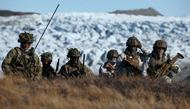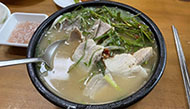"There are many reports that in-flight medical emergencies are generated at the rate of one person per 800 to l,900 flights," said primary researcher Makoto Matsumura, M.D., of the Saitama Medical School in Japan.
More than half of these involves the loss of consciousness and heart attack. Factors such as anxiety, the environment inside the cabin, dehydration, prolonged sitting and alcohol use have been suggested as causes of these emergencies, but no one has researched these explanations or how the problem can be prevented.
This study evaluated the role of food and fluids in preventing fainting and heart attacks in air travelers.
"Having something to eat and drink is the simplest method of increasing the circulating blood volume for air travelers. Most are probably doing it before boarding anyway, but people need to know it is easy for their bodies oxygen levels to drop if they don? eat or drink before boarding," said Matsumura.
Researchers theorized that in-flight fainting spells and cardiopulmonary emergencies could be related to a change in blood-circulation. Low cabin pressure at higher altitudes causes blood vessels in the peripheral circulation and organs to expand as the body attempts to increase it oxygen supply. Everyone on the plane?rom infants to elderly, crew and passengers?ould have a relative reduction in oxygen supply throughout their bodies.
Blood pressure does not change if the circulating blood volume is high enough. However, it is possible to have a blood pressure decrease and oxygen deficiency in the organs if the amount of blood circulating in the body is too low to accommodate expanded blood vessels, and this may be affected by dehydration, said Matsumura.
The study was performed in a hypobaric (low barometric pressure) training laboratory for Japan? Air Force pilots in which barometric pressure can be completely controlled. Researchers simulated conditions equal to the pressure of a flight to l0,000 feet.
The tests were performed after a l2-hour fast and after eating and drinking.
In the fasting volunteers reduced cabin air pressure caused no change in heart function or blood flow volume, but blood pressure decreased by about 4mm/Hg, and oxygen saturation decreased in the peripheral arteries by about ll percent, and in the brain by about 6 percent.
Eating and drinking caused no significant change in blood pressure, but it did increase cardiac output and blood flow to the brain as tracked through the right carotid artery. Food and fluid intake also improved the levels of oxygen in the peripheral organs by 2l percent, and in the brain by 48 percent over the fasting individuals.
스마터리빙
more [ 건강]
[ 건강]이제 혈관 건강도 챙기자!
[현대해운]우리 눈에 보이지 않기 때문에 혈관 건강을 챙기는 것은 결코 쉽지 않은데요. 여러분은 혈관 건강을 유지하기 위해 어떤 노력을 하시나요?
 [ 건강]
[ 건강]내 몸이 건강해지는 과일궁합
 [ 라이프]
[ 라이프]벌레야 물럿거라! 천연 해충제 만들기
 [ 건강]
[ 건강]혈압 낮추는데 좋은 식품
[현대해운]혈관 건강은 주로 노화가 진행되면서 지켜야 할 문제라고 인식되어 왔습니다. 최근 생활 패턴과 식생활의 변화로 혈관의 노화 진행이 빨라지고
사람·사람들
more
[한인단체 신년 인터뷰] 명원식 파바월드 회장… “한인 차세대 바르게 성장하는 토대 최선”
“한인 차세대들이 바르게 자랄 수 있는 토대를 만드는 것이 제가 파바월드의 회장으로 존재하는 유일한 이유입니다”한인사회의 대표적 청소년 봉사 …

LA한인회 멘토 프로그램 10일 스티브 강 위원장
LA 한인회(회장 로버트 안)가 한인사회 차세대 인재양성 노력의 하나로 ‘멘토를 만나다’ 프로그램을 정례화해 실시하고 있는 가운데 그 세 번째…
미주 한인의 날 기념… 잇달아 ‘코리안 나잇’
미주 한인들의 역사와 성취, 그리고 미국 사회에 기여해 온 발자취를 기리는 1월13일 ‘미주 한인의 날’을 맞아 LA의 주요 프로 스포츠 구단…
‘K-팝의 미래’ 세미나 16일 LA 문화원 개최
LA 한국문화원(원장 이해돈)은 세계한류학회(WAHS)와 함께 오는 1월16일(금) ‘케이팝 데몬 헌터스와 케이팝의 미래 세미나 및 라운드테이…
[한인단체 신년 인터뷰] LA 한인회 로버트 안 …
“더욱 적극적이고 실질적인 서비스로 한인들의 어려움을 돕고, 한인사회 발전에 앞장서겠습니다.”2026년 병오년 새해를 맞아 LA 한인회 로버트…
많이 본 기사
- 다우, 첫 49,000 돌파 증시 연초 랠리 지속
- 일자리 위협하는 AI, 전문직도 대체한다… 컴퓨터 전공·로스쿨 졸업생들도 ‘취업난’ 극심
- ‘비자 보증금’ 대상 확대… 최대 1만5천달러 내야
- 연방대법 9일 중대 판결 “상호관세 결정 가능성”
- ‘불륜 논란’ 숙행, 15일 상간녀 ‘위자료 1억’ 소송 선고
- 첨단기술 ‘CES 2026’ 개막… 행사장에 몰린 구름 관람객
- [신년 집중기획/ 한인 정치력 신장 원년으로] 중간선거의 해… “투표 통해 한인 공직자 늘려야”
- 손담비, 시동생 성폭행 ‘악플 소송’ 냈다.. “50만원 배상하라”
- ‘전혜진 남편’ 故 이선균 묘비에 새긴 절절 고백.. ‘사랑해’
- 17년 만에 지상파 3사 다 뚫었다..김준수, SBS ‘미우새’ 출격
- 마두로 사태 ‘중남미 최정예’ 쿠바 굴욕
- 노키아의 ‘피벗 DNA’… 몰락했던 휴대폰 거인, 엔비디아 손잡고 부활 신호탄 쏜다
- 케네디에 관한 네 개의 이야기
- 한인타운 노래방 협회 발족한다
- [미국은 지금] 2026년 ‘손님’ 의식 버리고 ‘주인’ 입장을
- [마크 A. 시쎈 칼럼] 트럼프의 20가지 업적
- 공영방송공사 결국 해산 트럼프 예산중단에 백기
- 경찰, 박나래·키 ‘주사 이모’ 압수수색..수사 본격화
- “유튜버 될 수 있어요” 무료 특강
- 40명 사망 스위스 술집, 6년간 소방점검 없었다
- 프렌치 셰프가 만드는 돼지국밥… 익숙한데 새롭고, 낯선데 세련됐다
- 한인, 주 재무차관에… 버지니아 제임스 허씨
- LAX 진입로 혼잡 극심 이번주 시설철거 공사
- 미국서 비만 치료제 시장 전쟁 ‘본격’
- [수요 에세이] 이젠 끝이다 “Nevermore, Nevermore”
- “베네수 석유생산 증대”
- [만화경] ‘가짜 일’ 줄이기
- 벼랑 끝에서 살아난 안세영 새해 첫 대회 1회전 진땀승
- [LA 대형산불 1주년] “회복은 진행중”… 피해자 현실 예술 승화
- 머스크의 AI ‘그록’ , 아동 성적 이미지 양산 비판 쇄도
- 미, AI 데이터센터 반대 확산
- 대형마트 판매, 13년전 ‘강제휴무’ 이후 최대 낙폭
- “정후, 금 밟았어!” 비석치기에 진심이었던 MLB 사나이들
- 레이건 前대통령 장남 마이클 레이건 별세… “부친 유산지킨 수호자”
- 전자제품 환경 규제 강화된다
- 포드·GM 신차판매↑ 현대차·도요타 선전
- 홈플러스 41개 매장 폐점 제시… 노조 반발 넘을까
- [CES 2026 라스베가스서 개막] 인공지능 두뇌 장착 로봇… 완전체 자율주행차도
- ‘윌셔·버몬트’ 메트로역 폭발물 의심물체 소동
- 연방정부, 원자력 부흥에 ‘박차’
- 미국서 ‘비트코인 ATM’ 피싱 매년 급증
- [경제단체장 신년 인터뷰] 옥타LA 김창주 회장 “한미 경제발전·한인경제 활성화 역점”
- “OECD 글로벌 최저세, 미 기업엔 면제”
- 캘리포니아, 이혼 수수료 저렴해진다
- [인터뷰-슈올즈 이청근 회장] “전조증상 감지도”… 기능성 신발 세계 도전
- 올해 VA 페어팩스 집값… “싱글홈 웃고 콘도는 글쎄”
- 맘다니, “마두로 체포는 국제법 위반” 석방 촉구
- 올해 금리 1%P 내려야 마이런 연준이사 주장
- “한인 고교생 사랑의 선물”
- LA한인회 멘토 프로그램 10일 스티브 강 위원장
1/5지식톡

-
 미 육군 사관학교 West Poin…
0
미 육군 사관학교 West Poin…
0https://youtu.be/SxD8cEhNV6Q연락처:wpkapca@gmail.comJohn Choi: 714-716-6414West Point 합격증을 받으셨나요?미 육군사관학교 West Point 학부모 모…
-
 ☝️해외에서도 가능한 한국어 선생님…
0
☝️해외에서도 가능한 한국어 선생님…
0이 영상 하나면 충분합니다!♥️상담신청문의♥️☝️ 문의 폭주로 '선착순 상담'만 진행합니다.☎️ : 02-6213-9094✨카카오톡ID : @GOODEDU77 (@골뱅이 꼭 붙여주셔야합니다…
-
 테슬라 자동차 시트커버 장착
0
테슬라 자동차 시트커버 장착
0테슬라 시트커버, 사놓고 아직 못 씌우셨죠?장착이 생각보다 쉽지 않습니다.20년 경력 전문가에게 맡기세요 — 깔끔하고 딱 맞게 장착해드립니다!장착비용:앞좌석: $40뒷좌석: $60앞·뒷좌석 …
-
 식당용 부탄가스
0
식당용 부탄가스
0식당용 부탄가스 홀세일 합니다 로스앤젤레스 다운타운 픽업 가능 안녕 하세요?강아지 & 고양이 모든 애완동물 / 반려동물 식품 & 모든 애완동물/반려동물 관련 제품들 전문적으로 홀세일/취급하는 회사 입니다 100% …
-
 ACSL 국제 컴퓨터 과학 대회, …
0
ACSL 국제 컴퓨터 과학 대회, …
0웹사이트 : www.eduspot.co.kr 카카오톡 상담하기 : https://pf.kakao.com/_BEQWxb블로그 : https://blog.naver.com/eduspotmain안녕하세요, 에듀스팟입니다…
케이타운 1번가
오피니언
 정숙희 논설위원
정숙희 논설위원케네디에 관한 네 개의 이야기
 마크 A. 시쎈 / 워싱턴포스트 칼럼니스트
마크 A. 시쎈 / 워싱턴포스트 칼럼니스트 [마크 A. 시쎈 칼럼] 트럼프의 20가지 업적
 김동찬 시민참여센터 대표
김동찬 시민참여센터 대표 [미국은 지금] 2026년 ‘손님’ 의식 버리고 ‘주인’ 입장을
 이현숙 수필문학가협회 이사장
이현숙 수필문학가협회 이사장 [수요 에세이] 이젠 끝이다 “Nevermore, Nevermore”
 최형욱 / 서울경제 논설위원
최형욱 / 서울경제 논설위원 [만화경] ‘가짜 일’ 줄이기
 민경훈 논설위원
민경훈 논설위원도널드 W 부시와 이라크 전의 추억
 황의경 사회부 기자
황의경 사회부 기자 타국에서, 다시 ‘우리’를 생각하다
 박원곤 이화여대 북한학과 교수
박원곤 이화여대 북한학과 교수 [백상논단] 붉은 말의 해, 한반도에 다시 오는 분기점
 홍용희 수필가
홍용희 수필가 [화요칼럼] 내 안의 바위
1/3지사별 뉴스

맨하탄 연방법원에 출두한 마두로 대통령 “나는 납치됐다”
미군에 의해 체포돼 부인과 함께 미국으로 압송된 니콜라스 마두로 베네수엘라 대통령이 5일 맨하탄 연방법원에 처음 출두해 모든 범죄 혐의를 부인…
이민단속에 안면인식 앱까지 동원

“헌법 무시”Vs“안보 강화”
미국이 3일 나콜라스 마두로 베네수엘라 대통령을 군사 작전으로 체포한 사건과 관련해, 워싱턴 지역 정치권은 상반된 반응을 보이고 있다. 정치인…
DC 보안 강화, 마두로 체포로 인해 ‘초비상’

‘안면 인식’으로 불체자 확인·체포한다
트럼프 행정부의 초강경 이민 단속 기조 속에 불법체류자 단속을 위해 안면 인식 기술이 본격적으로 활용되고 있어 논란이 커지고 있다. 4일 월스…
중부 캘리포니아 ‘한인 이민사’ 나왔다

오늘 하루 이 창 열지 않음 닫기 


















































.png)


댓글 안에 당신의 성숙함도 담아 주세요.
'오늘의 한마디'는 기사에 대하여 자신의 생각을 말하고 남의 생각을 들으며 서로 다양한 의견을 나누는 공간입니다. 그러나 간혹 불건전한 내용을 올리시는 분들이 계셔서 건전한 인터넷문화 정착을 위해 아래와 같은 운영원칙을 적용합니다.
자체 모니터링을 통해 아래에 해당하는 내용이 포함된 댓글이 발견되면 예고없이 삭제 조치를 하겠습니다.
불건전한 댓글을 올리거나, 이름에 비속어 및 상대방의 불쾌감을 주는 단어를 사용, 유명인 또는 특정 일반인을 사칭하는 경우 이용에 대한 차단 제재를 받을 수 있습니다. 차단될 경우, 일주일간 댓글을 달수 없게 됩니다.
명예훼손, 개인정보 유출, 욕설 등 법률에 위반되는 댓글은 관계 법령에 의거 민형사상 처벌을 받을 수 있으니 이용에 주의를 부탁드립니다.
Close
x